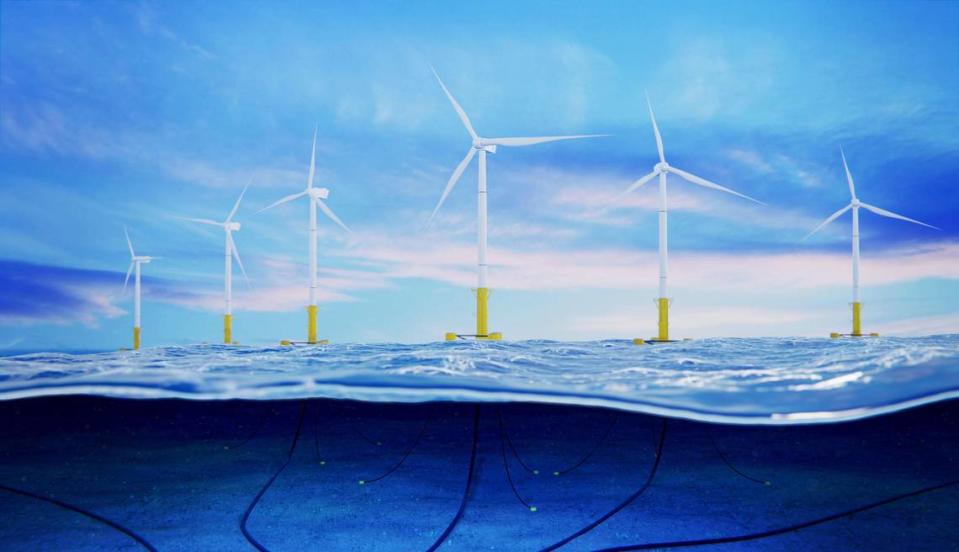For offshore wind to work, we must prioritize communities most impacted by climate change | Opinion
California stands at a pivotal moment in its clean energy transition. As the state strives to meet its climate goals and eliminate reliance on fossil fuels, offshore wind energy has emerged as a promising clean energy solution. However, the success of offshore wind development hinges not only on technological advancements, but also on equitable and inclusive planning that prioritizes frontline communities — those that are disproportionately affected by climate change, often low-income and communities of color.
The California Energy Commission recently invited comments on its Assembly Bill 525 Offshore Wind Strategic Plan. With vast potential off the coast, offshore wind could present a clean, renewable energy source that finally helps wean us off the nearly 200 polluting gas plants we currently depend on for our state’s electricity generation. Yet, as we move forward with wind energy, we must ensure that the concerns of frontline communities are addressed and the benefits are equitably distributed.
Opinion
The Regenerate California Coalition, a partnership between the California Environmental Justice Alliance and the Sierra Club, submitted a comment letter laying out key recommendations for prioritizing the needs and ideas of tribal and pollution-burdened environmental justice communities in offshore wind development.
We insist that offshore wind energy can and must facilitate the retirement of gas-fired power plants, starting with those sited in disadvantaged communities.
In the summer of 2023, for example, the state extended the dangerous operations of the Ormond Beach Generating Station despite pleas from thousands of families in Oxnard. The Ormond power plant exacerbates air pollution in a community of color in Ventura County that is also one of the state’s most polluted neighborhoods. By decommissioning fossil fuel infrastructure and transitioning to clean energy, communities living near these polluting power plants can significantly reduce exposure to harmful pollutants and associated health risks.
There is also a need for greater engagement between the state and Indigenous tribes and environmental justice communities. Meaningful engagement ensures that the most impacted communities are at the forefront of the offshore wind planning and decision-making processes. Historically, low-income and communities of color have been left out or have been the last to benefit from renewable energy infrastructure and investments. Our wisdom from the land, water and people who live on the frontlines of industrial pollution is valuable in developing solutions to meet California’s climate and energy goals.
As California transitions to a cleaner energy future, it is imperative that offshore wind development does not perpetuate environmental injustices — we cannot, for example, concentrate pollution in port communities or disregard Indigenous land and water stewardship.
Moreover, California needs to consider the full spectrum of benefits that offshore wind can bring to frontline communities. Beyond clean energy generation, offshore wind projects have the potential to create local job opportunities, enhance energy resilience and provide economic benefits to underserved communities. By responsibly siting offshore wind projects and maximizing community-scale clean energy resources like community solar and storage, we can address local reliability issues and improve energy access for all Californians.
Additionally, there is great importance in environmental protection and mitigation measures to minimize the impact of offshore wind projects on marine ecosystems. By conducting comprehensive research and monitoring, we can identify potential risks and implement adaptive management strategies to safeguard marine habitats and wildlife.
As California plans ahead with offshore wind development, it must do so with a commitment to environmental justice and equity. By prioritizing the needs, ideas and concerns of frontline communities, we can ensure that this big clean energy transition benefits all Californians, particularly those who are burdened by the dirty energy system we are moving away from.
Sofi Magallon is policy advocate at the Central Coast Alliance United for a Sustainable Economy. Tyler Valdes is energy justice manager at California Environmental Justice Alliance.



